Words matter. They help us understand each other and the things around us. Sometimes well-intentioned people do not know how to talk about disabilities and accidentally use language that is offensive. The common words of today may become offensive at a later point in time as more self-advocates discuss how those words make them feel.
As a general rule, language about individuals with disabilities should reflect that which is used by self-advocates to describe themselves. Occasionally, self-advocates don’t agree on which words are best. For example, some people on the autism spectrum use identity-first language (“I am autistic”), and other people use person-first language (“I am a person with autism.”) Judy Endow, a well-known self-advocate on the autism spectrum, discusses some of the reasons in this article while highlighting what is most important:
“Rather than seeing the polarized language of person with autism and autistic, I see a unifying construct. I now see that when Kathie Snow invited us to use person-first language she was actually inviting us to come into a person-first attitude. And it is this person-first attitude that unites the word usages of person with autism and autistic. We all want to be included in the human race.” – Judy Endow
To promote understanding, here is a “cheat sheet” that describes why some words should never be used (in red), why some words may offend someone (in yellow), and a few options that most self-advocates promote as acceptable language (in green).
Objectionable/Offensive Terms
Sometimes Objectionable Terms
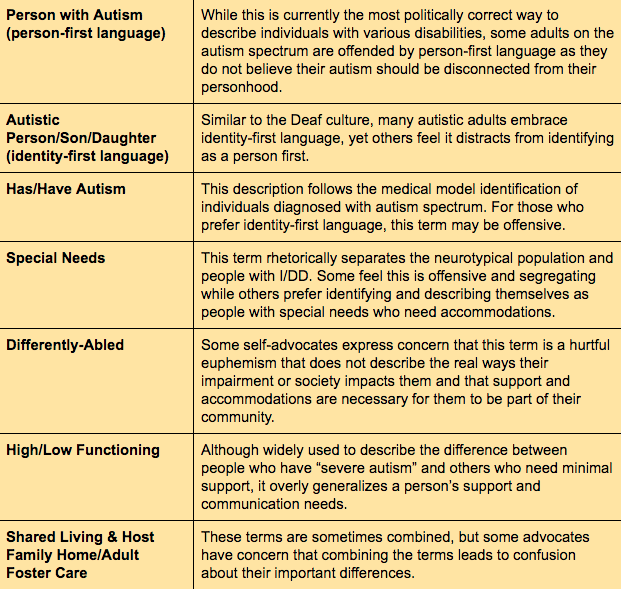
Acceptable Terms
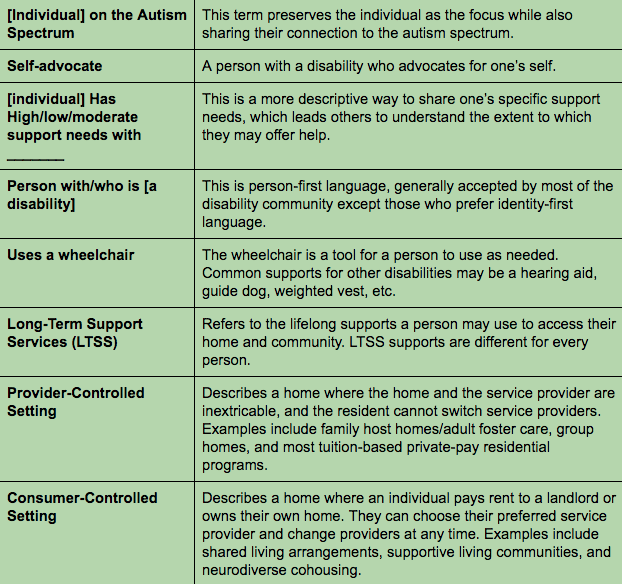
You’re Invited! Facebook Live Discussion: “Words Matter: Talking About Disabilities”
We hope you found this resource helpful. For more discussion, please join us on Monday, October 31st, 2016 from 12:00-12:30PM EST on the Madison House Autism Foundation Facebook Page for a LIVE discussion on “Words Matter: Talking About Disabilities.” This is a great opportunity to learn and share, so please join the conversation! Until then, click here to sign up for the Autism Housing Network and receive updates about more exciting events.
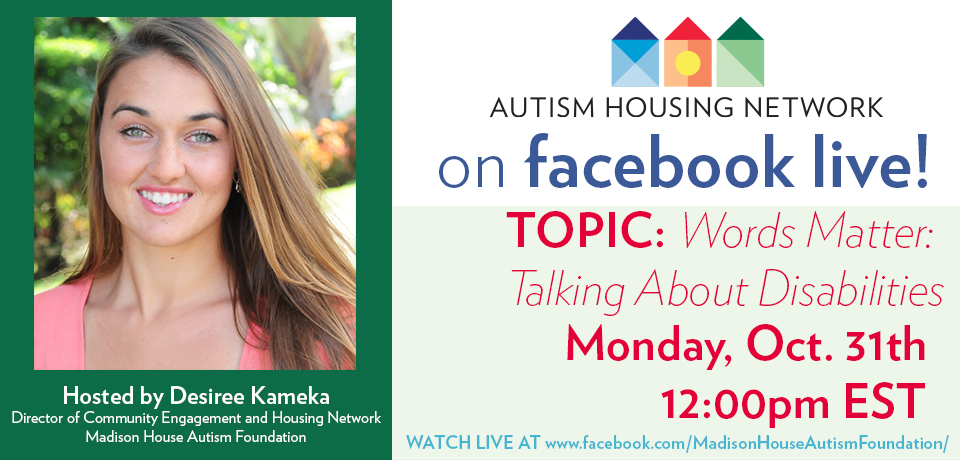

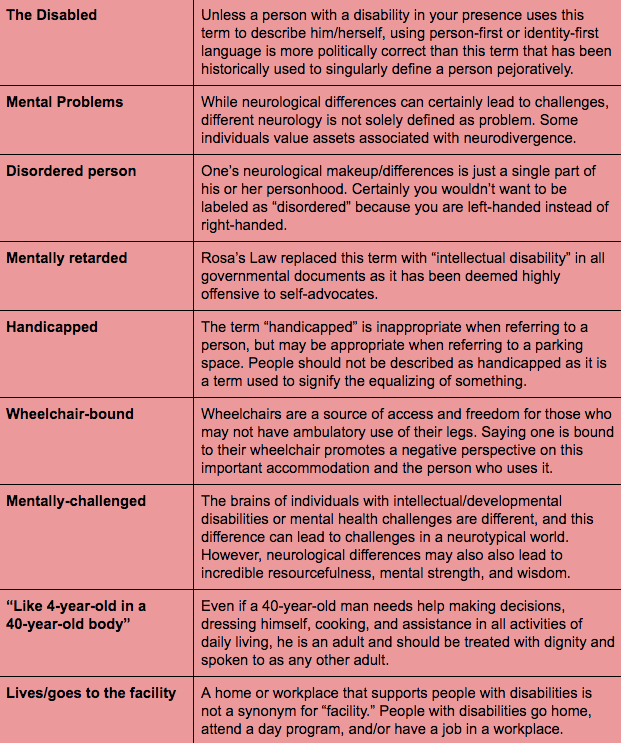
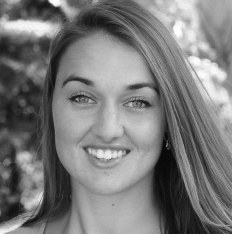 DESIREE KAMEKA, DIRECTOR OF COMMUNITY ENGAGEMENT AND HOUSING NETWORK
DESIREE KAMEKA, DIRECTOR OF COMMUNITY ENGAGEMENT AND HOUSING NETWORK MHAF Featured Artist | Bimshwel Crimmenabim
MHAF Featured Artist | Bimshwel Crimmenabim



Where can young adults go for socialization in DC, my son is 27 years old and he would like to hang out, he is autistic.